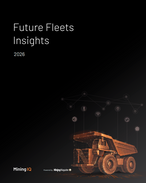This article is 12 years old. Images might not display.
The state Department of Environment Quality is considering air, wastewater and construction permits for the terminal, which is proposed to ship coal from Ambre’s mines in Montana to Asian markets.
The coal would be railed about 1039 miles from Ambre’s Decker mine to a totally enclosed facility at the Port of Morrow on the Columbia River where coal would then be barged to the Port of St Helens for export.
Australian Ambre Energy is striving to be the first company to export coal through the northwest to Asia.
In February it lodged an initial application for the terminal through the Oregon Department of State Lands.
The three draft permits under consideration are the standard air contaminant discharge permit (air permit), industrial wastewater permit (WPCF) and stormwater construction discharge permit (1200-C).
“We are pleased that the permitting process is moving forward,” Ambre Energy Morrow Pacific project president and chief executive officer Clark Moseley said.
“The project requires several state and federal permits.
“State and federal agencies are driving a rigorous and thorough environmental review of the project.
“While this step is not a green light to begin operations, the DEQ permits, once issued, will be the signal for us to start construction, putting hundreds of Oregonians back to work.”
The issuance of the draft permits triggers a 40-day public comment period and three concurrent public hearings, which will occur on July 9 in Hermiston and Portland.
The project is awaiting a permit for dock construction from the US Army Corps of Engineers.
Environmental groups are unhappy with the regulatory process and are citing the need for a much broader study from DEQ.
“Oregon has broad authority to review the full impacts of dirty coal on the entire Columbia River, not just draw a box around the terminal site,” Columbia Riverkeeper executive director Brett VandenHeuvel said in a statement.
“But, so far, DEQ is not doing everything in its power to protect people who rely on the Columbia for food and water.
“This includes requiring a 401 water quality certification that will evaluate all impacts of dirty coal on our river.”
There is no specific date for final permits.
Ambre previously said stage 1 of the project would ship 3.5 million metric tons per annum and cost $152 million, while stage 2 would take capacity to 8Mtpa for an additional investment of $94 million.
Ambre said the $242 million project would provide construction jobs and 50 permanent jobs.
























